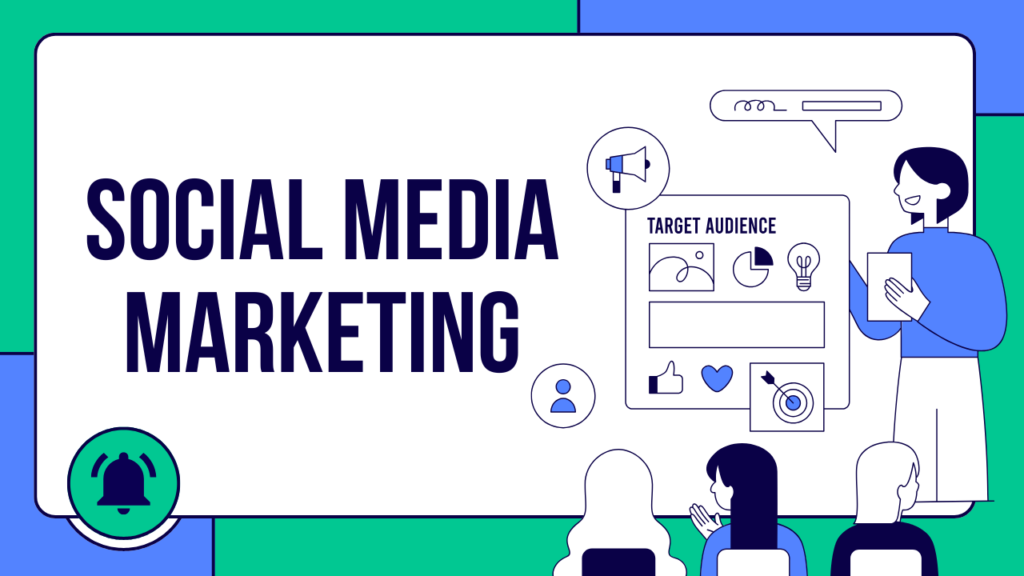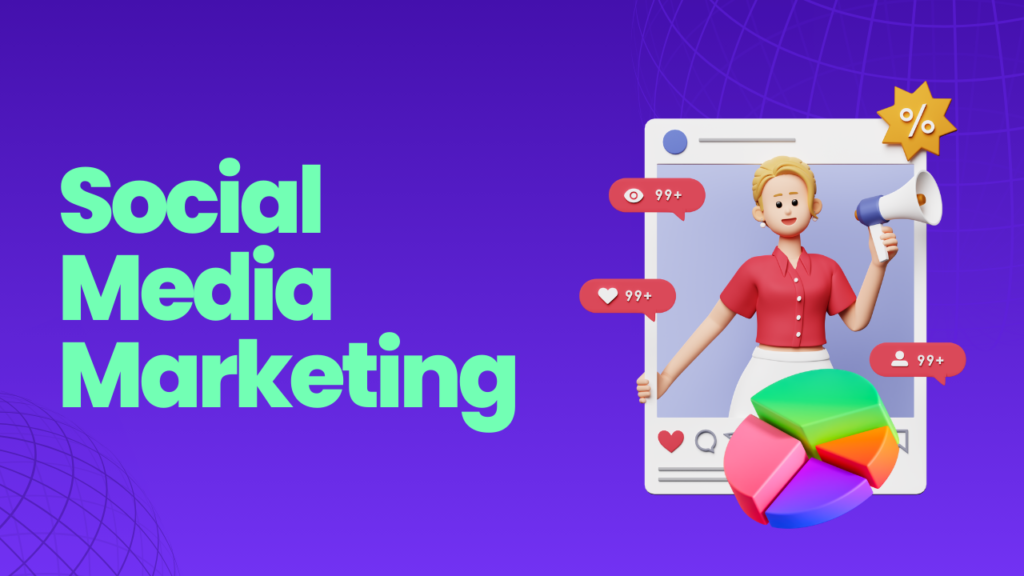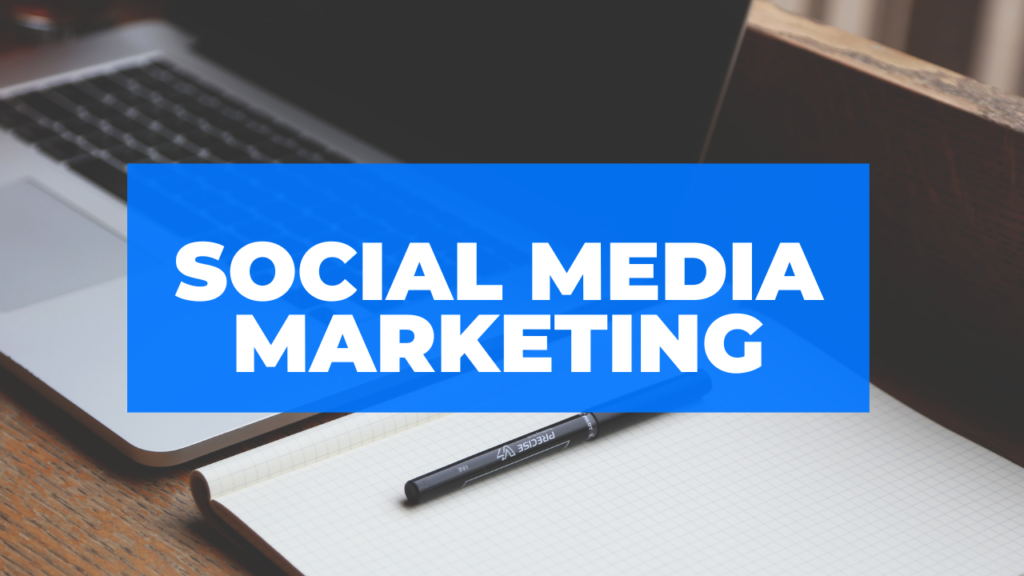
In today’s digital world, social media marketing (SMM) has become an essential tool for businesses looking to build brand awareness, engage with their audience, and drive sales. With billions of people actively using social media platforms, businesses have the opportunity to connect with potential customers in ways never seen before. However, successful social media marketing requires more than just posting content—it involves strategy, analytics, and engagement.
In this blog, we’ll explore what social media marketing is, its key benefits, how to create a successful strategy, and finally, we’ll break down the best platforms for different types of businesses.
What is Social Media Marketing (SMM)?

Social Media Marketing (SMM) refers to the process of promoting products, services, or brands on social media platforms. It involves creating and sharing content, running paid advertisements, engaging with users, and analyzing results to improve marketing strategies.
Key Components of SMM
- Content Creation: Developing engaging and valuable content that resonates with your target audience.
- Community Engagement: Interacting with followers through comments, messages, and discussions.
- Paid Advertising: Running paid promotions to increase visibility and reach new customers.
- Analytics & Optimization: Tracking performance metrics to refine strategies and improve results.
- Influencer Collaborations: Partnering with social media influencers to reach a broader audience.
Why is Social Media Marketing Important for Businesses?
SMM is one of the most powerful digital marketing strategies because it provides businesses with several benefits:
1. Increases Brand Awareness
Social media platforms help businesses gain exposure and attract a wider audience. A well-planned content strategy can turn a small brand into a household name.
2. Drives Traffic & Conversions
Social media channels act as bridges to direct traffic to a website, online store, or landing page, leading to higher conversions.
3. Improves Customer Engagement & Loyalty
Engaging with your audience through comments, likes, and direct messages creates a personal connection, building trust and loyalty.
4. Cost-Effective Marketing
Compared to traditional advertising, social media marketing is more affordable and often delivers a higher return on investment (ROI).
5. Allows Targeted Advertising
Platforms like Facebook, Instagram, and LinkedIn allow businesses to run highly targeted ads based on demographics, interests, and online behavior.
6. Provides Valuable Insights
Social media analytics tools help businesses track engagement, reach, and customer behavior, enabling data-driven marketing decisions.
How to Create a Successful Social Media Marketing Strategy

A well-planned SMM strategy can significantly impact your business growth. Here’s how to create an effective strategy:
Step 1: Define Your Goals
Set clear and measurable objectives, such as increasing brand awareness, driving website traffic, or boosting sales.
Step 2: Identify Your Target Audience
Understand who your ideal customers are, their preferences, and which social media platforms they use the most.
Step 3: Choose the Right Platforms
Not every platform is suitable for every business. Select platforms based on your audience and business type (explained in detail below).
Step 4: Create High-Quality Content
Develop engaging and relevant content that aligns with your brand message. Use a mix of images, videos, blog posts, and infographics.
Step 5: Engage with Your Audience
Respond to comments, messages, and mentions to foster a sense of community and customer trust.
Step 6: Use Paid Advertising (If Necessary)
Run targeted ad campaigns to boost visibility and reach a larger audience.
Step 7: Analyze & Optimize
Use analytics tools to track performance and adjust your strategy for better results.
Top Social Media Platforms for Businesses
Now that we understand the basics of SMM, let’s explore the major social media platforms and which businesses they are best suited for.
1. Facebook – The All-Rounder
Best for: Small businesses, e-commerce brands, local businesses, and service providers.
Facebook remains the largest social media platform, making it ideal for businesses looking to build an online presence and run targeted ads.
Key Features:
- Facebook Pages for businesses
- Facebook Groups for community building
- Facebook Ads for targeted marketing
- Facebook Marketplace for product selling
Pros: 1. Large audience reach 2. Advanced ad targeting 3.Strong community-building features
Cons: 1. Organic reach has declined 2. Younger audiences are shifting to other platforms
2. Instagram – The Visual Powerhouse
Best for: Fashion, beauty, travel, food, and lifestyle brands.
Instagram is perfect for businesses that rely on high-quality visuals and influencer marketing.
Key Features:
- Instagram Reels for short, engaging videos
- Instagram Stories for promotions
- Instagram Shopping for e-commerce brands
- IGTV for long-form content
Pros: 1. High engagement rates 2. Strong influencer marketing potential 3. Great for brand aesthetics
Cons: 1. Requires high-quality visuals 2. Algorithm changes can affect reach
3. LinkedIn – The Professional Network
Best for: B2B businesses, recruiters, coaches, consultants, and professionals.
LinkedIn is excellent for networking, lead generation, and B2B marketing.
Key Features:
- LinkedIn Articles for thought leadership
- LinkedIn Ads for precise targeting
- LinkedIn Groups for professional networking
Pros: 1. High credibility and professional audience 2. Best for B2B lead generation 3. Less saturated with ads
Cons: 1. Limited for B2C businesses 2. Organic growth can be slow
4. TikTok – The Viral Sensation
Best for: Entertainment, beauty, fitness, education, and brands targeting Gen Z.
TikTok is the best platform for viral marketing and creative storytelling.
Key Features:
- TikTok Challenges for engagement
- TikTok Ads for precise targeting
- TikTok Trends for viral potential
Pros: 1. High organic reach 2. Great for storytelling 3. Low-cost advertising
Cons: 1. Requires frequent content creation 2. Unpredictable algorithm changes
5. Twitter (X) – The News & Trend Hub
Best for: Tech, news, politics, and brands needing real-time engagement.
Twitter is excellent for businesses that need to stay updated with trends and interact with customers.
Key Features:
- Twitter Threads for storytelling
- Twitter Spaces for live discussions
- Hashtags for trend discovery
Pros: 1. Fast engagement 2. Great for customer service 3. High virality potential
Cons: 1. Content lifespan is short 2. Requires constant activity
Conclusion

Choosing the right social media platform depends on your business type, target audience, and goals. Instead of trying to be everywhere, focus on 1-2 platforms that align with your brand and master them.
Pro Tip: Start where your audience is most active. Experiment, analyze results, and refine your strategy over time.
What platform has worked best for your business? Let us know in the comments!
Want to maximize your online presence? Check out our in-depth guide on SEO to boost your website’s rankings and drive more organic traffic!
Stay connected with us on social media for more expert tips!
Pingback: Efficient SEO Tips for Beginners: How to Rank #1 on Google
Pingback: 9 Powerful Reasons Why Social Media Marketing Is Essential